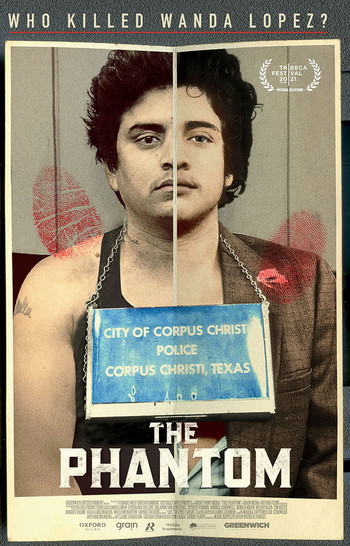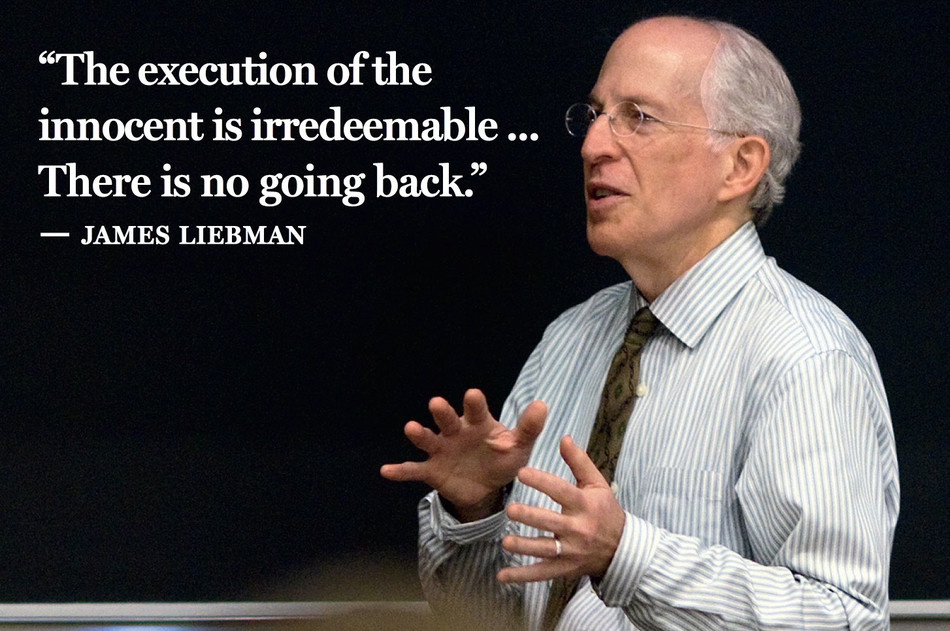On the night of February 4, 1983, in Corpus Christi, Texas, a twenty-four-year-old single mother, Wanda Lopez, called 911 from the gas station where she worked. Terrified, she told the dispatcher that a man was standing inside with a knife. Seconds later, she screamed.
Police arrived at the scene and found Lopez dying from multiple stab wounds. A gas-station customer who had witnessed the struggle gave a description of the attacker. Officers raced after a man whom other witnesses had seen running nearby. When police found the man, Carlos DeLuna, hiding under a pickup truck, they arrested him and called off the search for the killer.
At his trial, twenty-one-year-old DeLuna insisted that he did not kill Lopez. But he said he knew who did: a man who looked like him and had the same first name — Carlos Hernandez. The lead prosecutor told the jury that this other Carlos was a “phantom” that DeLuna had made up. After a short deliberation, the jury convicted DeLuna of murder and soon thereafter sentenced him to death. He maintained his innocence until the state of Texas executed him in 1989.
More than a decade later, in 2004, Columbia Law professor James Liebman began looking into the case. An expert on the death penalty, Liebman has published studies showing that most capital cases are overturned because of errors. Liebman wanted to focus on a single case to show these errors at work, and so he turned his attention to Texas, the state with the most executions in the country. He asked one of his students, Douglas Jaffe ’05LAW, to write a paper on a Texas capital-punishment case that had relied on testimony from a single eyewitness. Jaffe came across the DeLuna case.
After reading Jaffe’s paper, Liebman ordered a transcript of the trial. Noting that DeLuna had named Carlos Hernandez as the murderer, Liebman asked an investigator in Texas to see if he could find a Carlos Hernandez in Corpus Christi. In a single day, the investigator discovered that Hernandez existed — and had a record of gas-station robberies and knife assaults against young women.
Liebman and a team of law students and private investigators established the Columbia DeLuna Project, which interviewed more than a hundred witnesses and sifted through court documents and crime-scene photographs. The project found, among other things, that police had known that Carlos Hernandez existed and had arrested him multiple times. Yet this information was not presented to the jury.
“This was the least attended-to case you could imagine,” says Liebman. “Why? Because both the victim and the defendant were low-income people of color and the defendant had very poor legal counsel. There was no pressure to get it right.”
Over a span of ten years, twelve students worked with Liebman on the DeLuna Project, and in 2014, Liebman, with the project’s last five students, coauthored the book The Wrong Carlos. They also built a website to make public all the evidence in the case. “We put everything out there to let people decide for themselves,” says Liebman.
This summer, the Tribeca Film Festival premiered The Phantom, a documentary about DeLuna’s wrongful execution and Liebman’s investigation. Director Patrick Forbes decided to make the film after reading an article about Liebman’s work at Columbia.
The DeLuna Project shaped the legal careers of many of Liebman’s former students. “That case was a light that guided me,” says Shawn Crowley ’11LAW, a former federal prosecutor now in private practice. “I know bad, bad things can happen when you’re not paying attention to the accuracy of the so-called facts. As a prosecutor, you shouldn’t be trying to win. You should be trying to bring justice.”
“Capital punishment is an area where you need to be perfect, but humans are not perfect,” says Andrew Markquart ’12LAW, now a staff attorney at the Great North Innocence Project in Minneapolis. With the release of The Phantom, the New York–based Innocence Project launched a petition demanding President Biden commute the sentences of the forty-six people on federal death row.
“This film arrives when the nation is rethinking the death penalty in a way it hasn’t done at the national level for decades,” says Liebman. “Because of the DeLuna case, no one can say that the state has not killed an innocent person. And the execution of the innocent is irredeemable. After that happens, you can’t do anything. There is no going back.”
This article appears in the Fall 2021 print edition of Columbia Magazine with the title "No Margin for Error."




